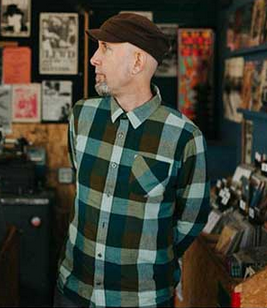A Quote by Adrian Tomine
I wanted to try to create characters that happen to be Asian but who are pretty different from those we generally see in our culture, in our commercial culture.
Related Quotes
All of us somehow felt that the next battleground was going to be culture. We all felt somehow that our culture had been stolen from us-by commercial forces, by advertising agencies, by TV broadcasters. It felt like we were no longer singing our songs and telling stories, and generating our culture from the bottom up, but now we were somehow being spoon-fed this commercial culture top down.
The foreign audiences are somewhat surprised and happy to find an American film that asks questions about American culture. There's a certain kind of cultural imperialism that we practice. Our films penetrate every market in the world. I have seen and have had people reflect to me, maybe not in so many words or specifically, but I get the subtext of it - they're somewhat charmed and surprised and happy to see an American film reflect on our culture. Because they see other cultures reflect on our culture but they don't see US culture reflecting on itself in quite the same way.
I think so much of our society is geared towards mainstream media and pop culture and so forth. And there's a huge divide between the artist and the fan. And with indie culture that wall is removed. You actually do see the musicians walking around enjoying the show. It's a distinctly different culture and for the 99% of Nirvana fans that caught up with them with Nevermind, my book is gonna give them a whole different take on Kurt [Cobain] and the band.
The real controversy comes with anthropologists - not all, but some - who see themselves as studying culture, and they then see culture from the perspective of humans, which is what they study. From their perspective, or, from some of their perspectives, it's sort of heresy to even talk about culture in any other animal. Others would say, "Yeah, you can talk about it, but our definitions of culture are so utterly different from yours and include things like values, and so on, which you've never shown to exist in any of these other creatures."
We both [with Jo Andres] think that it is really important to our culture that we support all kinds of music, all kinds of theatre and all kinds of art because you never know what moves people. We've always believed that there should be a strong voice outside the commercial world. Certainly, the commercial world has a huge place in our culture and we also support that - but, we also want to support the stuff that lives outside of that.
I really feel concerned about young people within our present culture. Our present culture, we have to change. Change is inevitable and I wasn't raised in our present culture but it has great pressure that as a young person I never had. Material pressure, social pressure, visual pressure, how you look, and I just try to appeal to young people to think for themselves, to be their own person, and to ask questions and also be very attentive to our planet and our environment.
Where it is the majority religion, Islam does not recognize religious freedom, at least not as we understand it. Islam is a different culture. This doesn't mean that it's an inferior culture, but it is a culture that has yet to connect with the positive sides of our modern Western culture: religious freedom, human rights and equal rights for women.



































